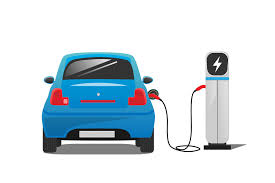
The United Kingdom's transition to electric vehicles (EVs) is encountering significant challenges due to disparities in the availability and affordability of charging infrastructure. These disparities are particularly pronounced in economically disadvantaged regions, potentially hindering the nation's progress toward widespread EV adoption.
Regional Disparities in Charging Infrastructure
Recent analyses reveal stark contrasts in the distribution of public EV charging points across the UK. For instance, Westminster boasts nearly 2,700 charging points, while Harrow has only 63. This uneven distribution extends beyond London; areas such as Yorkshire have approximately 56 charging points per 100,000 people, compared to 233 in London.
This imbalance is not merely a matter of urban versus rural locales but also reflects historical development patterns and economic disparities. Wealthier regions tend to have better access to charging infrastructure, leaving less affluent areas underserved.
Economic Implications of Charging Access
The cost of charging an EV varies significantly depending on access to private or public charging facilities. Home charging, available primarily to those with off-street parking, can be as low as 7p per kWh, especially with specific night-time tariffs. In contrast, public charging points often charge between 50p and 75p per kWh, making the cost per mile higher than that of petrol vehicles. Additionally, public chargers incur a 20% VAT, compared to the 5% rate for home electricity, further exacerbating the cost disparity.
This cost differential disproportionately affects individuals in lower-income brackets, particularly those residing in urban areas without access to private parking. Consequently, the current infrastructure setup may inadvertently favor higher-income individuals, undermining efforts to promote equitable EV adoption.
Impact on EV Adoption Rates
The uneven distribution and high costs associated with public charging infrastructure are contributing to a slowdown in EV adoption. Despite initial growth spurred by government incentives, recent data indicates that sales of electric vehicles are lagging behind expectations. For example, only 5.7% of vans sold from January to November were zero-emission, significantly below the 10% target.
This trend suggests that without addressing the infrastructural and economic barriers, the UK's goal of phasing out internal combustion engine vehicles by 2030 may face significant obstacles.
Recommendations for a Balanced Transition
To ensure a successful and equitable transition to electric mobility, the following measures should be considered:
By addressing these disparities through strategic planning and inclusive policies, the UK can facilitate a more equitable and efficient transition to electric vehicles, aligning with its environmental objectives and ensuring that all citizens benefit from the shift to sustainable transportation.
(Source:www.theguardian.com)
Regional Disparities in Charging Infrastructure
Recent analyses reveal stark contrasts in the distribution of public EV charging points across the UK. For instance, Westminster boasts nearly 2,700 charging points, while Harrow has only 63. This uneven distribution extends beyond London; areas such as Yorkshire have approximately 56 charging points per 100,000 people, compared to 233 in London.
This imbalance is not merely a matter of urban versus rural locales but also reflects historical development patterns and economic disparities. Wealthier regions tend to have better access to charging infrastructure, leaving less affluent areas underserved.
Economic Implications of Charging Access
The cost of charging an EV varies significantly depending on access to private or public charging facilities. Home charging, available primarily to those with off-street parking, can be as low as 7p per kWh, especially with specific night-time tariffs. In contrast, public charging points often charge between 50p and 75p per kWh, making the cost per mile higher than that of petrol vehicles. Additionally, public chargers incur a 20% VAT, compared to the 5% rate for home electricity, further exacerbating the cost disparity.
This cost differential disproportionately affects individuals in lower-income brackets, particularly those residing in urban areas without access to private parking. Consequently, the current infrastructure setup may inadvertently favor higher-income individuals, undermining efforts to promote equitable EV adoption.
Impact on EV Adoption Rates
The uneven distribution and high costs associated with public charging infrastructure are contributing to a slowdown in EV adoption. Despite initial growth spurred by government incentives, recent data indicates that sales of electric vehicles are lagging behind expectations. For example, only 5.7% of vans sold from January to November were zero-emission, significantly below the 10% target.
This trend suggests that without addressing the infrastructural and economic barriers, the UK's goal of phasing out internal combustion engine vehicles by 2030 may face significant obstacles.
Recommendations for a Balanced Transition
To ensure a successful and equitable transition to electric mobility, the following measures should be considered:
- Strategic Infrastructure Development: Implement a coordinated national strategy to expand charging infrastructure, prioritizing underserved regions to reduce regional disparities. This approach would involve installing approximately 2,800 charging points monthly across the country to meet governmental targets.
- Economic Incentives: Introduce subsidies or tax relief measures to lower the cost of public charging, such as reducing VAT on public electricity to match domestic rates. Additionally, offering 0% loans for used EVs and implementing scrappage schemes could make EVs more accessible to a broader population.
- Innovative Charging Solutions: Explore alternative charging methods for residents without off-street parking, such as on-street charging solutions or community charging hubs, to enhance accessibility.
- Public Awareness Campaigns: Educate the public about the benefits of EVs and the availability of charging infrastructure to alleviate concerns related to range anxiety and charging accessibility.
- Private Sector Collaboration: Encourage partnerships with private enterprises to invest in and expand the charging network, ensuring that infrastructure development keeps pace with the growing number of EVs.
By addressing these disparities through strategic planning and inclusive policies, the UK can facilitate a more equitable and efficient transition to electric vehicles, aligning with its environmental objectives and ensuring that all citizens benefit from the shift to sustainable transportation.
(Source:www.theguardian.com)














